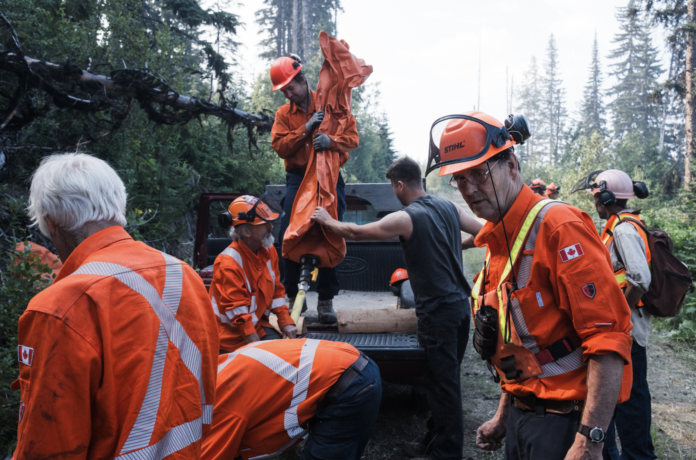As warmer weather rolls in, British Columbians are being asked to prepare for seasonal hazards.
Minister of Emergency Management and Climate Readiness, Kelly Greene said preparing for emergencies is a team effort, as they look ahead to climate-related emergencies such as spring flooding, wildfires and drought.
“Whether it’s the province, the federal government, local governments, First Nations, or people and families, everyone has a role to play and a starting point is creating a household emergency plan.”
“Now is the time to create a grab-and-go bag, and create that emergency plan.”
Greene added that we’re in the time of year where seasonal hazards increase, making it important to stay alert, informed and prepared.
Warming weather in the coming weeks will cause snowpack to melt, leading to increased spring runoff. When paired with heavy or extended rainfall, this can heighten the risk of flooding in rivers, streams and lakes.
The latest snowpack surveys from the River Forecast Centre, released on Wednesday, April 9, show B.C.’s overall snowpack is at 79 per cent of normal. Comparatively, in April 2024, the provincial snowpack averaged 63 per cent of normal, the lowest it had been in 50 years.
“Even though it’s only April, drier than normal conditions in parts of the province, combined with long-term water supply challenges, mean we already need to be mindful of water use,” said Randene Neill, Minister of Water, Land and Resource Stewardship.
Meanwhile, BC Wildfire Service (BCWS) forecasts indicates that British Columbia may experience an active spring wildfire season due to persistent drought conditions. This activity is expected to increase if there continues to be limited precipitation over the next several weeks and months. Until significant and sustained rains occur, the risk of ignition will remain elevated.
“Every day, the hard-working members of the BC Wildfire Service are preparing for the 2025 wildfire season,” said Ravi Parmar, Minister of Forests.
“We don’t know what it will bring, but we are putting in the work each and every day to protect our communities. With warmer weather just around the corner, I urge British Columbians to do their part to help protect their homes and communities through our provincial FireSmart program.”
The Province is working to keep communities safe by focusing on all four phases of emergency management: prevention, preparedness, response and recovery.
More detailed information can be found on the BC Government website here.
Be the first to know! Don’t miss out on breaking news and daily updates in your area. Sign up to MyKootenayNowNews Alerts.






